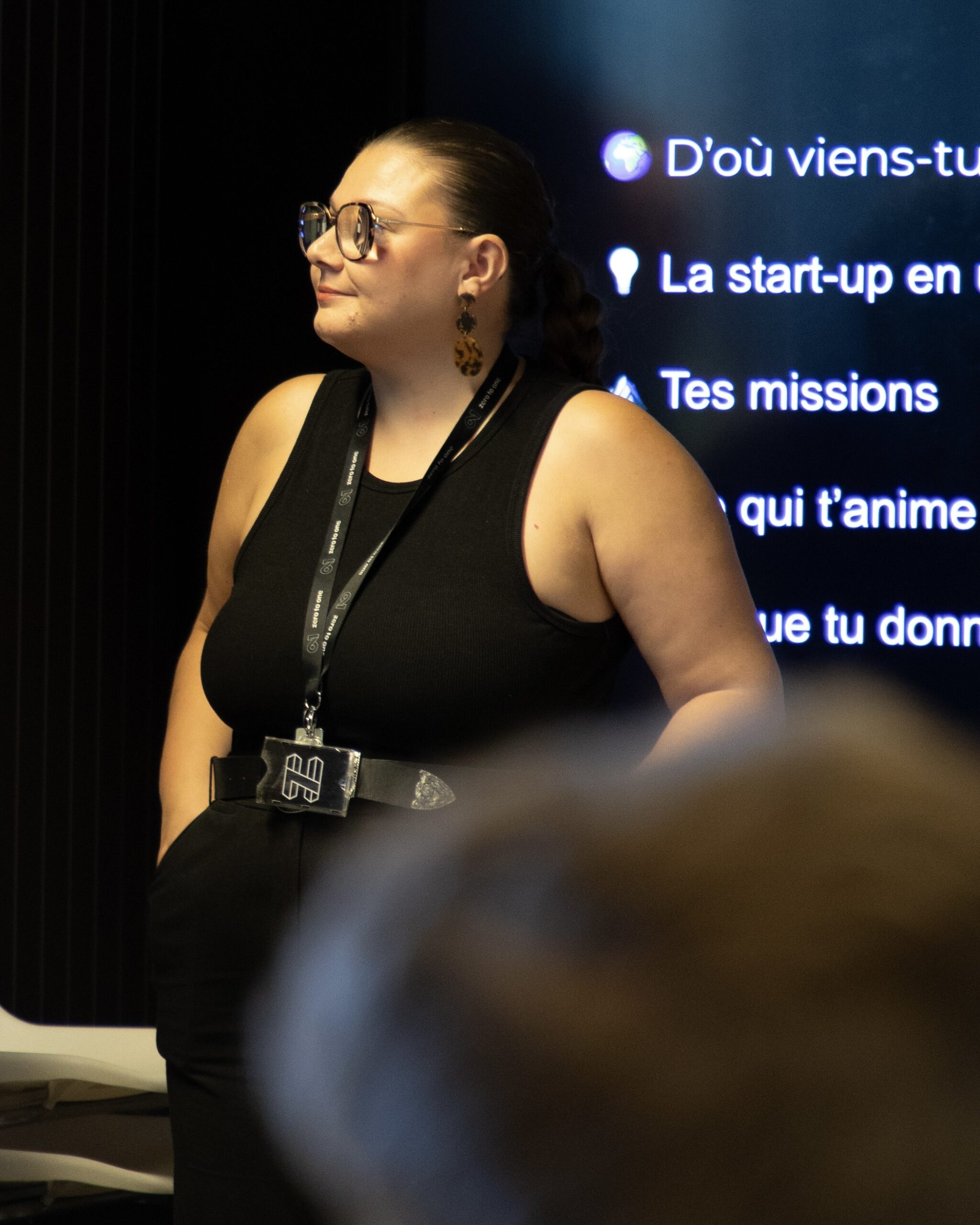Since its creation in 2020, Starton has helped more than 1,600 professionals move to Web3. Their solution facilitates the integration of blockchain into companies’ internal processes. A true pioneer on the French scene, Fabien Poggi – co-founder – was one of the guests at the Web3 incubator’s Demo day. The aim: to share his expertise on the adoption of blockchain technology, alongside Nelly Cornejo, Head of Adoption at iExec. Fabien took the opportunity to tell us about Starton’s creation, the difficulties encountered and its ambitions.
Hello Fabien ! Can you introduce yourself?
Hello, my name is Fabien, CEO of Starton, and for as long as I can remember I’ve wanted to be an entrepreneur .
Post-bac, I opt for an eco-finance college. I study interesting subjects like macroeconomics and financial analysis, but the courses are fairly theoretical.
After my bachelor’s degree, I read in the press about the creation ofÉcole 42 by Xavier Niel. It’s 2013, the school is about to open its doors and the call for applications begins. At the time, I wasn’t a developer, but I was a bit of a geek, taking PCs apart and getting interested in crypto and blockchain. I tried my luck and was selected to join the first class.
During my training at École 42, I take part in an immersive phase called “La Piscine”. It was a real revelation: I came across the code and saw a business opportunity that could reach millions of people.
During my school years, and right up to the creation of Starton, I was involved in one project after another. I work as a developer for individuals, start-ups and companies.
In 2019, I see opportunity in the crypto and blockchain market. I’m teaming up with Cédric Cervantes, a friend from École 42. We took part in an incubation program with École 42 and launched a project: a financial tokenization application.
At first, everything went well, we built up our customer portfolio and issued our first invoices, but very quickly we encountered a major difficulty: the technical challenge was enormous. At this point, blockchain is pretty prehistoric! Processes are complicated and skills are lacking. I take the heavy decision to stop the project.
A painful but decisive choice, since it gave birth to Starton.
What is Starton’s mission?
After our previous project came to a halt, we started from scratch with Cédric. Our idea is to enable companies to integrate blockchain into their processes, simply, without running up against the technical challenges we’ve encountered in the past.
We create tools that enable all developers to build large-scale blockchain applications simply and quickly. No blockchain expertise is required. With Starton, we want to break the barriers to entry for Web3 and blockchain!
A year and a half after launching Starton, we’re happy to report a positive balance sheet: we’ve raised 4 million euros from committed investors, and we’ve surrounded ourselves with 17 talented people who make up a remarkable team. We’re living an exceptional adventure!
What do you think is currently limiting the adoption of Web3 solutions?
Experience with Web3 and blockchain has identified two main obstacles. The first is technical: as described earlier, we encountered it ourselves when creating our first project, and this is the problem we want to solve with Starton.
The second obstacle is education. Blockchain is a complex technology that requires education. So we need to educate and give developers the tools and resources to understand and implement Web3. It’s thanks to training and transmission that technology can develop and new business projects be born.
If we want to create Web3 champions, we need to teach it at school. But today, apart from independent training courses, no engineering or developer school is training students in blockchain. How can we become tomorrow’s leaders if junior developers aren’t trained?
At our level, we try to raise awareness and pass on our knowledge. We hold conferences, like this one at H7, workshops and hackathons. We also go into schools to organize competitions and reward the best Web3 projects. In short, we explain the protocols shaping this new digital world.
You talk about “training tomorrow’s leaders”. Do you think France can position itself in the Web3 market?
Until now, the Americans have always been ahead of us, but in recent years, some fine French success stories have emerged, such as Ledger and iExec. We’re convinced that France has a real chance of achieving digital sovereignty in Web3. We hope Starton will be one of the world’s leaders!
At the conference, Nelly Cornejo, Head of Adoption at iExec, shared the Web3 adoption curve with us. Is it true to what you experienced when you launched Starton?
Throughout our entrepreneurial adventure, we took on walls. But our solution addresses real problems.
When it comes to adopting our solution, almost all our customers have favored in-house development before turning to us. They test, put their teams of developers into action and launch production. It’s during this production phase that technical barriers arise. That’s where Starton comes in, bringing value to these players.
Any advice for Web3 entrepreneurs looking to get started?
I’ve made a lot of mistakes in my career. Nelson Mandela said: “I never lose, either I win or I learn”. I spread myself too thin, and often, if you try to be on all fronts, you end up nowhere.
When building a company, the main challenge is to focus all your energy on a single project and believe in yourself.
What’s next for Starton?
Our priority is to expand the team and diversify its profiles. Today, it’s mainly made up of developers, because our philosophy is product-oriented. Our challenge now is to recruit talent for the sales side.
Since our creation, we’ve found our customers by word of mouth. But our ambition is to become the world leader, so we need to make ourselves visible to as many people as possible. We’ve got a few strategic leads and lots of ideas!
Before concluding, let’s talk about the start-ups in the first class of the Web3 Incubator. LAfricaMobile, Wearspaces and Ziplo have just presented their solutions at Demo Day: what did you think?
From left to right: Aurélie Drouvin l Ziplo, Fabien Poggi l Starton, Malick Diouf l LAfricaMobile l Gilles Fedak l iExec, Ruben Attal and Alex Frêne l Wearspaces, Kelly Green l H7
I had a great time. The support offered by iExec and H7 as part of this Web3 incubator is a real opportunity for rapid iteration. Entrepreneurs are fortunate to evolve in an environment like H7’s, which is an excellent catalyst for entrepreneurship. I was impressed by the level of maturity of the projects.
Let’s start with Ziplo: it’s a really interesting project! In a digital world where everything is copied, Ziplo brings real added value: the platform is easy to use, with a real focus on protecting intellectual property.
The solutions developed by LAfricaMobile are highly intelligent. They combine free access, benefits and data security. Thanks to LAfricaMobile, companies recover qualified information, while protecting user data thanks to blockchain. The market is huge!
Wearspaces deals with an important subject. As we can see, Facebook has become Meta. When we were kids, we used MSN or Messenger. Tomorrow, children will have a virtual reality headset in their room to go into the Metaverse. Brands have understood this and want to invest in this technology. Thanks to Wearspaces, they will open up new markets.




